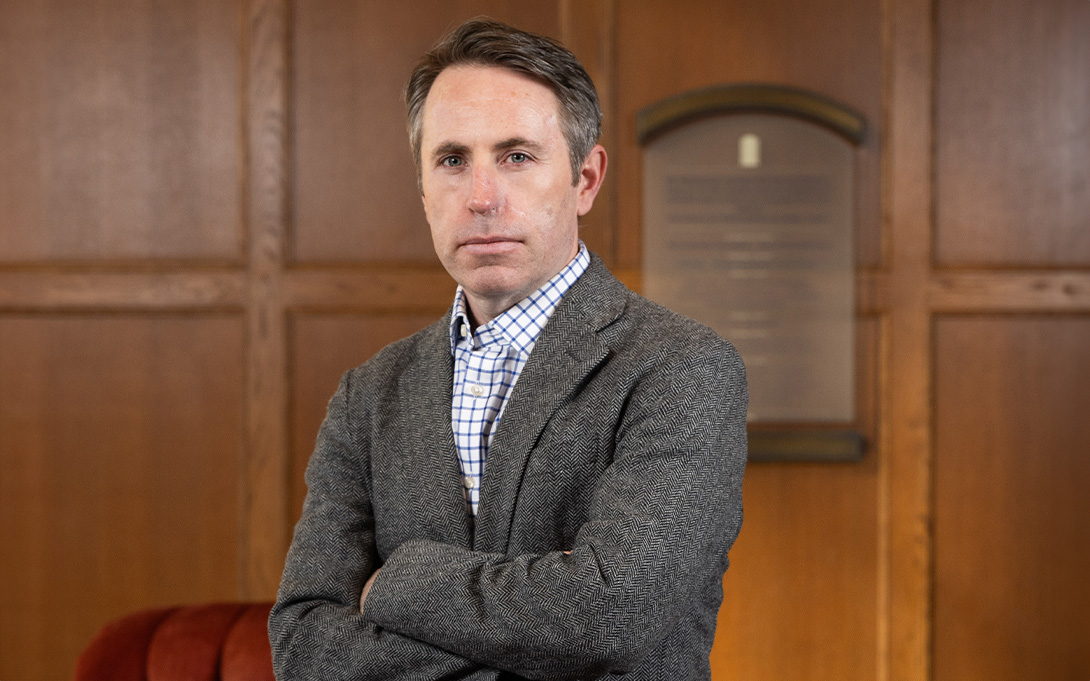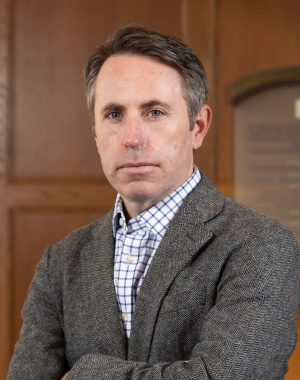
Donald Moynihan joined the Ford School this year as the next J. Ira and Nicki Harris Family Professor of Public Policy. His research seeks to improve how government works by studying the administrative burdens people encounter in government, and he co-directs the Better Government Lab. Moynihan writes a popular Substack column, Can We Still Govern?
What drew you here to Michigan?
Partly my attraction was to the Ford School and its reputation for great scholarship, and also the fact that it’s embedded in a great public university. We (with partner Pamela Herd) are both interdisciplinary scholars, and so being in a place where there’s so much strength within Ford and across campus was a big draw.
You’ve written about Trump’s “Schedule F” plan for the federal workforce. Are there any arguments for Schedule F that you find persuasive?
Largely no. There’s always a case for improving and modernizing the civil service system, and there are always problems with bureaucracy. But Schedule F doesn't solve these problems and would actually worsen existing problems. Proponents have argued it’s a way of removing poor performers, and that’s an appealing argument. But it’s clear from the statements of those who would actually use this power that it’s much more centered on installing political loyalty as a primary virtue in how public organizations are run. We have research on what happens when you politicize a public sector work environment: consistently, the quality of public services declines as you lose experienced, capable people who don’t want to work in environments where their professional expertise is ignored.
What could and should Congress do about the federal workforce?
The last major civil service reform was in 1978. It’s already past time for Congress to reimagine what a modernized civil service system would look like. And there is bipartisan agreement that there is a need for modernization that isn’t politicization. For example, we could make it easier for the public sector to hire people, to move more quickly in hiring processes, to maybe bring people on board who are interested in working for the government for shorter periods of time.
In general, the public sector in America works pretty well. But there is a need to modernize it while protecting it from potentially being abused by political actors. So yeah, I think Congress should do something. We’ll see what happens. Much depends on the election.
Your research is around reducing administrative burdens. What are “administrative burdens”?
“Administrative burdens” are people’s experiences of policy implementation as onerous. They occur in our interactions with public services or services that are funded by the public sector, but delivered through private actors, like much of our healthcare system. Those burdens fall into three different types: first, the learning costs of figuring out what you need to do to access a service; second, compliance costs, things like filling out forms, wait times, demands for documentation; and third, psychological costs, which are people’s emotional responses to these interactions, which can range from stress and frustration to fear or sense of stigma.
You’ll start teaching Public Management in January. Tell us about the class.
There's a lot of variation within public sector organizations, and that's part of what makes it a fun and challenging thing to teach about. NASA operates differently from Homeland Security. At the same time, there are some common challenges and constraints for public sector management. We talk about concepts like, how does leadership and accountability work in the public sector? What are your ethical obligations in public settings? I think these questions are incredibly interesting to explore, since answering them sits at the intersection of law, democracy, and the study of organizations. The hope is that when students finish the class and if they end up going into public service, they will recognize the world in which they've entered.
Written by Laura K. Lee (MPP ’96)
More in State & Hill
Below, find the full, formatted fall 2024 edition of State & Hill. Click here to return to the fall 2024 S&H homepage.
